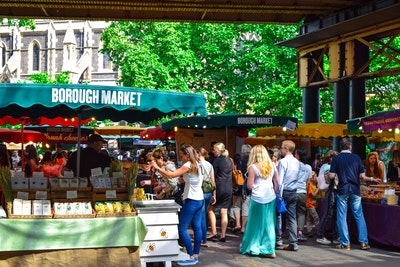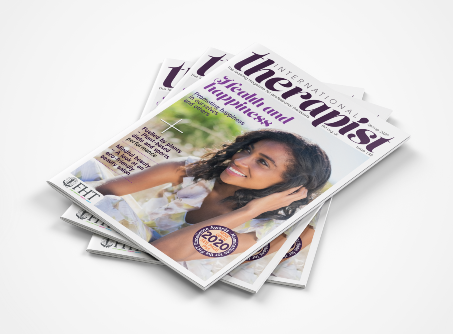
By Liza Horan, Editor
Many in-person wellness businesses rushed to develop online products and services when lockdown restricted access to their in-person offerings. Now, as lockdown progressively lifts, businesses are faced with new ways of working while balancing their online and offline efforts. The latest advice calls prioritising customer needs, distinguishing your value proposition and reviewing what’s sustainable for the long-term.
The pandemic was “a global pilot project no one was prepared for,” Hotpod Yoga Co-Founder and CEO Max Henderson said in an online discussion panel hosted by Welltodo‘s Lauren Armes. Hotpod, which provides multi-sensory portable environments, acted quickly and started streaming classes within two days and got a full online content program live within five days. But the learning continues, he said, as the wellness industry and society at large figures out how to take things forward.
Economists forecast that society will stick with the online habits formed during lockdown. And that includes wellness classes, networking events and talks.
“Everyone has been working out and that’s not going to change,” said panelist Glen Stollery, who is CEO of Les Mills International, which comprises more than 20,000 physical clubs, 140,000 instructors, and on-demand streamed classes. There will be customers who are happy to work out privately at home, while others love the group dynamic they get at a gym or studio, he said. Les Mills is prepared to serve all of them.
So what’s a boutique studio to do?
Stollery suggested several options, from offering both online-only membership as well as gyms or studio membership, and even offering a combination of the two. He said gyms can keep their classroom spaces in action without a live instructor by running “virtual classes” with the online content.
Top takeaways:
- Hygiene is the top priority for wellness businesses. Follow industry guidelines (see Global Wellness Institute’s reopening resources), revise your own operation procedures, and be transparent with customers about your compliance with them.
- Open two-way communication channels with your customers. Don’t just broadcast your information, Stoller said, encourage your customers to contribute — and listen to them. This will boost your ability to serve them and retain their business.
- Balance online and offline efforts. If your bricks-and-mortar business was forced to close during lockdown, you may have sprung some online options to keep customers engaged during lockdown. Consider continuing the online aspect as a paid service or an added-value option for a certain level of paid membership to your studio, for example.
In other news…
Coronavirus counts are 3.2 million cases worldwide with 337,000 deaths, according to the World Health Organization. The rate of new infection is decreasing. Sweden’s “experiment” avoiding lockdown measures, unfortunately, has earned the country highest coronavirus cases per capita worldwide.
Maintain immune-boosting efforts: Getting good sleep, taking vitamins and supplements, and getting good nutrition and exercise all help boost immunity to coronavirus. Efforts ought to continue as research suggests that “a person could be re-infected with coronavirus in six months,” Sky News reports, calling it “a blow to the push for ‘immunity passports’ as evidence of recovery from the illness.”
Psychosis, self-harm spike: Mental health has suffered during lockdown to the point that there are more attempts to harm one’s self. “Lockdown is having a particularly severe impact on people who have experienced trauma – either recent or historic. Being under lockdown can replicate aspects of the original trauma: feeling trapped, imprisoned or with no escape route. The state has taken control, and this may leave them feeling extremely powerless – similar to how they felt during the traumatic event,” Suicide Crisis CEO Joy Hibbins writes on MentalHealthToday. “We know that feeling trapped can greatly increase a person’s suicide risk.”

Photo/Lisa Fotios, Pexels
Another treacherous impact of lockdown has been the rise in domestic abuse. No place is immune. See details for U.S., for Europe, and the U.K. The BMJ published a report on domestic abuse during Covid-19, comparing it to previous pandemic behaviour.
One California doctor is calling for the lockdown to be accelerated, reports the National Review. “We’ve never seen numbers like this, in such a short period of time,” Dr. Mike deBoisblanc, head of trauma at John Muir Medical Center, told local station ABC7. “I mean, we’ve seen a year’s worth of suicide attempts in the last four weeks.”
And in the UK, The Guardian writes, “The Zero Suicide Alliance, a collaboration of NHS trusts, charities, businesses and individuals, revealed that 503,000 people had completed its online course, which aims to spot the signs that a person needs help, during lockdown.” That’s more than double the amount who had completed the online suicide prevention training from 2017 to 2019.

Photo/Mark Dalton, Pexels
Psychosis also has increased. “Dozens of patients across Scotland have been treated for psychosis in recent weeks, as evidence mounts that the coronavirus pandemic can trigger mental illness,” The Times writes. “A UK-wide surveillance programme suggests that some patients infected with Covid-19 suffer ‘altered mental states” such as psychosis and encephalitis, an inflammation of the brain that can cause seizures and hallucinations.’
One of the social interactions that lockdown requires us to forgo is casual conversations with strangers. These “weak ties” with others “are essential in good times – and in the coronavirus era, they are more crucial than ever,” Joanna Moorhead explains in The Guardian. She refers to the theory put forth in 1973 by Stanford professor Mark Granovetter, “who argued that while strong ties (family, friends, colleagues) are fundamental to our lives, it’s the more distant connections (acquaintances, people you strike up a conversation with at a party, friends of friends) that are fundamental to our career and holistic development.” Those seemingly random connections are how we learn and find new ideas and opportunities; without them, it seems hope could suffer.

Kindness was chosen as the theme for Mental Health Awareness Week in the UK because of its profound effect. The Federation of Holistic Therapists share details, and positive psychologist Vanessa King does deep-dive for her story (PDF) Health and Happiness, that appears in International Therapist. She provides 10 evidence-based ways to greater happiness, which affects physical and mental health.

Paganism grows: This ancient faith, which pre-dates Christianity and holds nature sacred, is growing in popularity and its enthusiasts have won an appeal to Scottish government to include it in the 2021 census. “It is estimated that there are about 10,000 pagans and wiccans, who believe in the practice of witchcraft, in Scotland,” The Times writes. “The Scottish Pagan Federation has its own official tartan. Its blue colour represents the Picts, the Celtic peoples who historically lived in eastern and northern Scotland.”
Amazonian tribes relying on traditional remedies to treat Covid-19. Bark of the carapanauba tree, which has anti-inflammatory properties, and bark from the saracuramira tree, an anti-malarial, and being used along with mango peel, mint and honey, reports Chris Jewers for Daily Mail and AFP. Among the 20,000 tribespeople who have contracted the virus, 1,400 have died.
Those in Brazil face especially tough circumstances as President Jair Bolsonaro is treating Covid-19 like a ‘little flu’ and urges people to get back to work to bolster the economy; while regional politicians call for greater national action to prevent spread and treat patients. And the country is suffering for it, as this week Brazil became the third highest country with confirmed coronavirus cases, reporting 262,545 cases resulting in 17,509 reported deaths, as of 19 May. Academics say figures may be greatly underreported.
As one tribe member characterised life in towns and cities: “They’ve been forced to choose who gets care and who doesn’t — and we don’t,” he said, “but we’ve learned to fend for ourselves.”


Comments